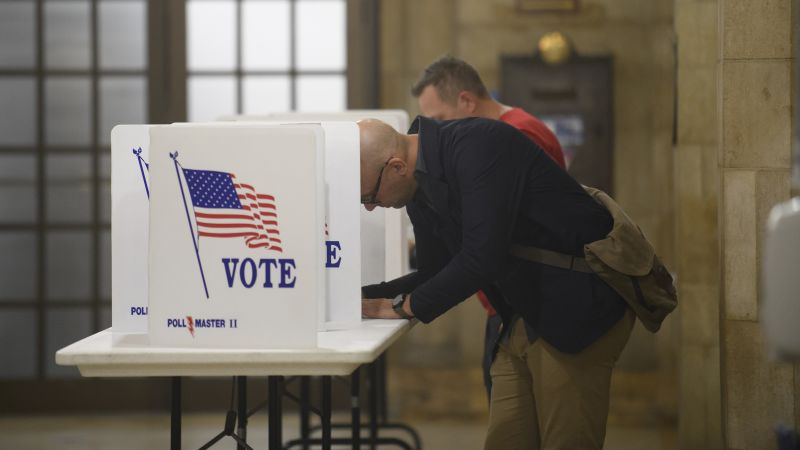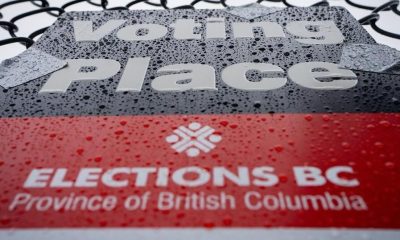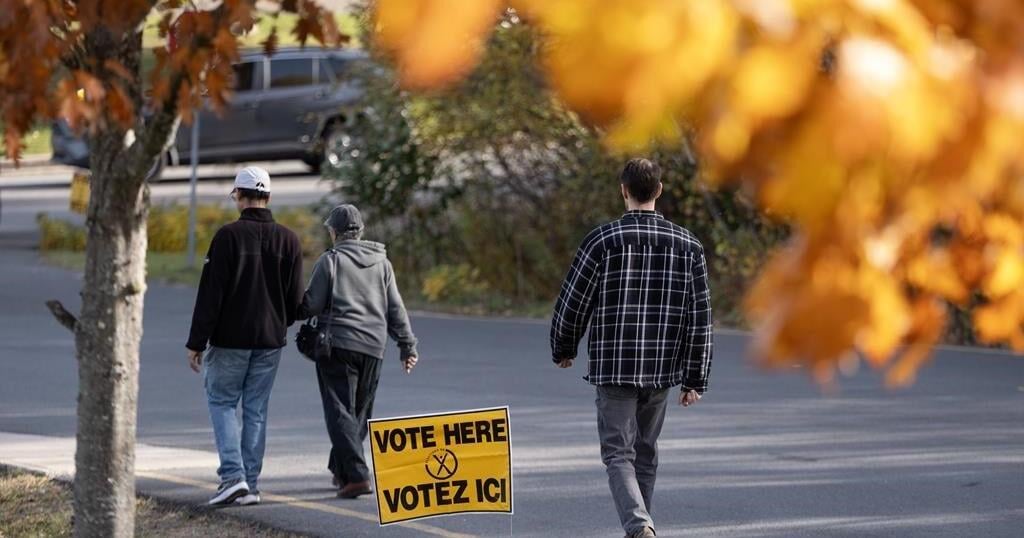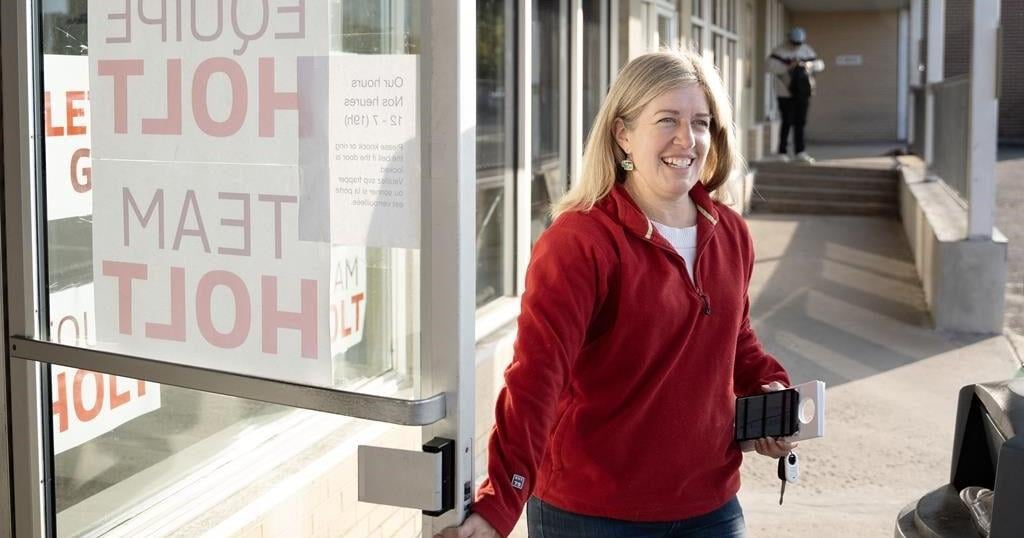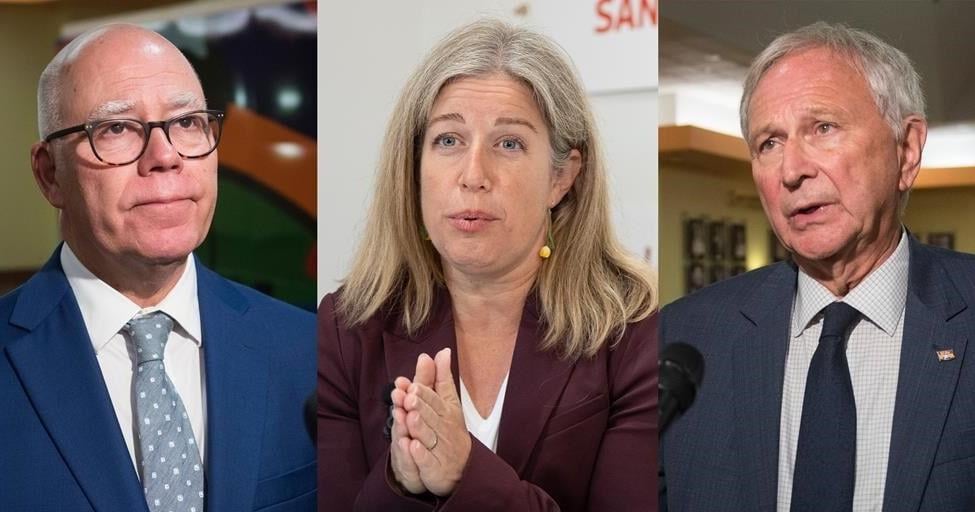All year, the principal question looming over the 2022 campaign has been whether Democrats could defy political gravity.
As we’re nearing the end, the answer appears to be: no, or at least not entirely.
Midterm elections have almost always been bad for the party holding the White House, and they have been especially bad when most Americans are dissatisfied with the economy and the president’s performance. Those conditions are present in force now, with polls showing that most Americans disapprove of how President Joe Biden has handled crime, the border, and especially the economy and inflation. Pessimism about the economy is pervasive. Historically such attitudes have generated big gains up and down the ballot for the party out of the White House – in this case, the Republicans.
That may be how the election ultimately turns out, especially in House and state legislative races where the individual candidates are less well-known, and many voters are likely to express dissatisfaction with the country’s direction by voting against the party in power. The president’s party, in fact, has lost House seats in all but three midterm elections since the Civil War. If there is a surprise in the House, it’s less likely to come from Democrats maintaining their majority than the Republicans exceeding the average 26 seat midterm gain for the party out of power since World War II.
But Democrats have remained unexpectedly competitive in the higher-profile Senate and gubernatorial races by focusing attention not only on what Biden has done, but what Republicans might do, with power. Many of these statewide contests have become a “double negative election”: while most voters in the key states consistently say they disapprove of Biden’s job performance, most also say they hold negative personal views about the GOP candidates, many of whom were propelled to their nomination by support from Donald Trump. If Democrats hold the Senate, or hold their own in the top governor races, a principal reason will be the large number of voters who viewed GOP nominees as unqualified, extreme (particularly in their desire to ban or restrict abortion), a threat to democracy, or all of the above. The same dynamic could also save some House Democrats in districts where Biden has fallen well below majority support.
So many races are so close – within the margin of error in public polls – that the results Tuesday could range from a true red wave to a Democratic sigh of relief. The scary precedent for Democrats is that in wave years almost all of the close races often tip in the same direction – toward the party out of power. A reason for Democratic hope is that in the final surveys, their candidates are consistently running better among all registered voters than among those the pollsters consider most “likely” to vote. That means the party could outperform expectations if even slightly more of its key constituencies (particularly young people) show up than pollsters anticipate – an outcome that groups such as the powerful union Unite Here is trying to achieve with 1,000 canvassers knocking on doors each day in Arizona, Nevada and Pennsylvania. “We are in the battle every place,” says Gwen Mills, the union’s secretary-treasurer. “All of [these races] are within the margin of effort.”
If Republicans take back either chamber this week, it would mark the fifth consecutive election in which a president who went into a midterm with unified control of government had it revoked by the voters. That happened to Donald Trump in 2018, Barack Obama in 2010, George W. Bush in 2006 and Bill Clinton in 1994.
No president, in fact, has successfully defended unified control of Congress through a mid-term since Jimmy Carter in 1978 – and he was insulated by the huge Congressional margins Democrats had amassed after Watergate, as well as his party’s strength in what was then still a “solid South” for Democrats. (The sole asterisk on this pattern is that Republicans under George W. Bush regained unified control of Congress in the 2002 midterm held a year after the September 11 attacks after a party switch by a Republican senator in early 2001 flipped control of the chamber to Democrats and broke the GOP’s unified hold on Congress.) A Republican takeover of either or both chambers would extend one of the defining trends of modern politics: Neither party has held the White House and Congress for more than four consecutive years since 1968. That’s a stark departure from most of the 20th century when each side, at different times, cemented lasting control for as long as 14 consecutive years.
No matter what happens Tuesday, most experts don’t anticipate either party shattering this fragile modern stand-off to establish a lasting edge. “I don’t see either side getting a durable advantage,” says Gary Jacobson, a professor of political science emeritus at the University of California at San Diego. “They are highly polarized parties, and they are very closely balanced overall.”
From that angle, Republican gains Tuesday would simply continue a long-standing tendency toward instability in our political system, with the initiative rapidly shifting back and forth between the parties. But the election could also ratchet that instability to a combustible new level. The strong tide behind Republicans virtually guarantees victories for some, maybe many, of the hundreds of candidates who have embraced Trump’s lies about the 2020 elections and signaled that they will seek to tilt the electoral rules toward the GOP or simply deny future wins by Democrats. Some of those candidates, if they lose this week, seem likely to emulate Trump after 2020 and refuse to concede, claiming fraud. (Arizona GOP gubernatorial nominee Kari Lake and Republican Sen. Ron Johnson of Wisconsin have each suggested as much already.) The most important legacy of this week’s voting may be the beachhead inside the electoral system it will likely establish for Republican officeholders untethered to America’s democratic traditions as we have known them.
In more conventional political calculations, Tuesday’s results seem likely to resurface debates, that had somewhat receded during the Trump years, over the structural electoral challenges Democrats face in the battle to control Congress.
The modern period of Congressional elections arguably began in 1994, when Republicans captured both the House and Senate in the backlash against Bill Clinton’s chaotic first two years. That ended an era in which Democrats had held the House majority for 40 consecutive years, and controlled the Senate, usually by wide margins, for all but six years over that long span.
Since 1994, though, Republicans have controlled Congress more often than Democrats. The GOP has held the Senate for about 16 and a half years (counting the roughly half year before the party switch cost them their majority in 2001) and Democrats for only about 11 and a half years. The imbalance in the House has been even more lopsided: Republicans have held it for 20 of these past 28 years, and Democrats for just eight. Especially ominous for Democrats is that if they lose the House on Tuesday, it would mark the second consecutive time they have surrendered their majority only four years after regaining it. (The previous case came when they were swept from the majority by the Tea Party uprising in 2010, just four years after they recaptured the chamber in 2006.) By contrast, Republicans held the House for 12 consecutive years from 1994 through 2006, and then for eight from 2010 through 2018.
What makes this disparity especially striking is that it has come even as Democrats have won the popular vote in seven of the past eight presidential elections since 1992 – something no party has done since the formation of the two-party system in 1828. (No Republican candidate has reached even 51% of the presidential popular vote since 1988.) These results clearly suggest the modern Democratic electoral coalition, on a nationwide basis, is larger than the Republican coalition. And yet, Republicans, more often than not, have controlled the Congressional majorities in this era anyway.
Aggressive GOP gerrymanders partly explain that difference in the House. But that doesn’t fully explain the GOP’s House advantage and it isn’t a factor at all in the party’s Senate edge. Instead, the Republican Congressional success largely reflects geographic and demographic limitations of the Democratic coalition that almost certainly will be evident again this week.
Tuesday’s election is likely to remind Democrats again that they are competing in too few places to establish a durable majority in Congress. In the House, Republicans have established such an overwhelming hold on rural and exurban districts that Democrats must win a very high share of urban and suburban districts to reach a majority. In a good year, like 2018, Democrats can meet that test. And even now, the continued resistance of college-educated suburban voters to the Trump-era Republican Party has provided Democrats a chance to hold down their losses in white-collar districts. But ceding so many rural, exurban and small-town seats leaves Democrats too little cushion to lose some of their suburban seats – as they inevitably will when discontent over the economy, and secondarily crime, is this high even in those places.
If anything, the Democrats’ geographic challenge is even greater in the Senate. A dominant trend in modern US politics is that both parties are winning virtually all the Senate seats in states that typically support their presidential candidates. The challenge for Democrats is that, despite their repeated victories in the popular vote, slightly more states reliably lean Republican than Democrat in presidential races. Democrats already hold 39 of the 40 Senate seats in the 20 states that voted against Donald Trump both times (Susan Collins in Maine is the only exception). But 25 states voted for Trump both times, and they provide Republicans an even larger Senate contingent, with the GOP holding 47 of their 50 seats. Democrats have squeezed out their precarious 50-50 Senate majority only by capturing eight of the ten seats in the five states that flipped from Trump in 2016 to Biden in 2020 (Pennsylvania, Michigan, Wisconsin, Arizona and Georgia).
This geography is what makes this week’s Senate elections so crucial to Democrats. This year’s key races are occurring almost entirely in states that Biden won, albeit mostly narrowly, with Democrats defending seats in Arizona, Georgia, Nevada, New Hampshire, Colorado and Washington, and targeting Republican-held seats in Pennsylvania and Wisconsin. (With longer odds, Democrats have also mounted serious challenges to Republicans in Ohio and North Carolina, two states that twice voted for Trump.) Given that map, Democratic strategists recognize it’s critical for the party to expand, or at least maintain, its Senate margin now.
After this year, the Senate terrain will rapidly become more foreboding for Democrats. In 2024, they will be defending all three of the seats they hold in the two-time Trump states (Sherrod Brown in Ohio, Joe Manchin in West Virginia and Jon Tester in Montana), as well as seats in half a dozen other swing states that could go either way in a presidential contest (including Arizona, Nevada, New Hampshire, Pennsylvania, Wisconsin, and Michigan.) If most of the toss up Senate races fall to the Republicans on Tuesday, those gains, combined with the 2024 map, could put the GOP in position to dominate the upper chamber throughout this decade. “If Republicans take the Senate, I don’t see in our immediate lifetime how Democrats are going to take back” the majority, says Doug Sosnik, a senior White House political adviser to Bill Clinton.
Much of the Democrats’ Senate problem is rooted in the constitutional provision that provides two Senate seats to every state. That magnifies the influence of sparsely populated, rural and strongly Republican interior states. There’s no political repositioning that is likely to provide Democrats a realistic chance any time soon to win Senate seats in Wyoming and Idaho or North and South Dakota.
But many Democratic strategists argue that the party must expand its map in the Senate by finding ways to attract more non-college and non-urban voters, especially with white people, but across racial lines, in at least a few more states. That list of potential targets includes places like Ohio, Iowa and Florida where Democrats competed much more effectively as recently as under President Barack Obama. Rebuilding the party’s competitiveness in those states could take years and likely require a significant change in its positioning and message.
Jim Kessler, executive vice president for policy at the centrist Democratic group Third Way, points out that while the party’s modern coalition of young people, racial minorities and college-educated whites has allowed it to effectively contest the presidency, it doesn’t represent a winning majority in enough states to reliably hold the Senate. “When you look at the electoral college, college educated [and diverse] America is close to enough to elect you president,” Kessler says. “But it is not close to getting you a majority in the Senate.”
Tuesday’s election could also demonstrate the reemergence of a second demographic challenge for Democrats in the battle for Congress, what analysts in the past have called the “boom and bust” nature of their electoral coalition. The biggest remaining uncertainty for Tuesday’s election may be how many young people, who polls show continue to back Democrats in large proportions, turn out. Usually, turnout falls more for young people than for older generations between presidential and midterm elections (hence the “boom and bust” risk). But in 2018, robust youth turnout helped power the Democratic gains.
Large-scale polls focused particularly on young adults (such as the Harvard Institute of Politics survey) have found them expressing levels of interest comparable to 2018. Yet their participation in early voting has been lackluster, and several recent national surveys (such as CNN’s poll last week) found their engagement lagging. If turnout among young adults disappoints on Tuesday, it will strengthen those Democrats who argue the party must prioritize regaining ground among middle-income, middle-aged voters, especially those without college degrees. (That includes non-college Latinos, particularly men, who may continue to drift away from Democrats at least somewhat this week.) The sharpest post-election debates among Democrats are likely to revolve around whether the party must embrace more conservative approaches on crime and immigration, two issues Republicans wielded to powerful effect, in order to earn a second look from more non-college educated voters across racial lines.
History says that a bad result on Tuesday need not panic Democrats about 2024 (though, in practice, it probably will). Midterms have not had much value forecasting the result of the presidential election two years later. Jimmy Carter and George H.W. Bush had relatively good first-term midterms and then lost their reelection races. The president (or his party) did lose the White House two years after bad midterms in 1958, 1966, 1974 and 2018. But Harry Truman in 1948, Ronald Reagan in 1984, Bill Clinton in 1996 and Barack Obama in 2012 all won reelection, usually convincingly, two years after stinging midterm losses. Alan Abramowitz, an Emory University political scientist who has built models that project presidential outcomes based on economic and public opinion data, says the results of the midterm add literally no predictive value to the forecasts.
The 2024 presidential election will begin almost immediately after Tuesday – probably before all the last votes are counted. Though midterm gains are the rule for the party out of power, Trump is likely to interpret GOP victories as a clarion call for his return; aides say he could announce a 2024 candidacy as soon as this month. White House officials believe Biden is certain to run if Trump does because he views the former president as an existential threat to American democracy. On Election Day 2024, the combined age of these two men will be nearly 160 years. Polls show that one of the few areas of broad public agreement is that most Americans do not want either to run again.
Yet, long before any newly elected officials take office, or any gavels in Congress change hands, the first consequence of Tuesday’s bitterly fought election may be to place America more firmly on the path toward exactly such a rematch. And this time, such a confrontation could occur with the electoral machinery in decisive states under control of Trump allies who share his willingness to tilt or even subvert the system. Whatever storms rattle the political system this week, the real tempest won’t arrive until 2024 – and it may bring the greatest strain on the nation’s fundamental cohesion since the Civil War.
Source link
Related

